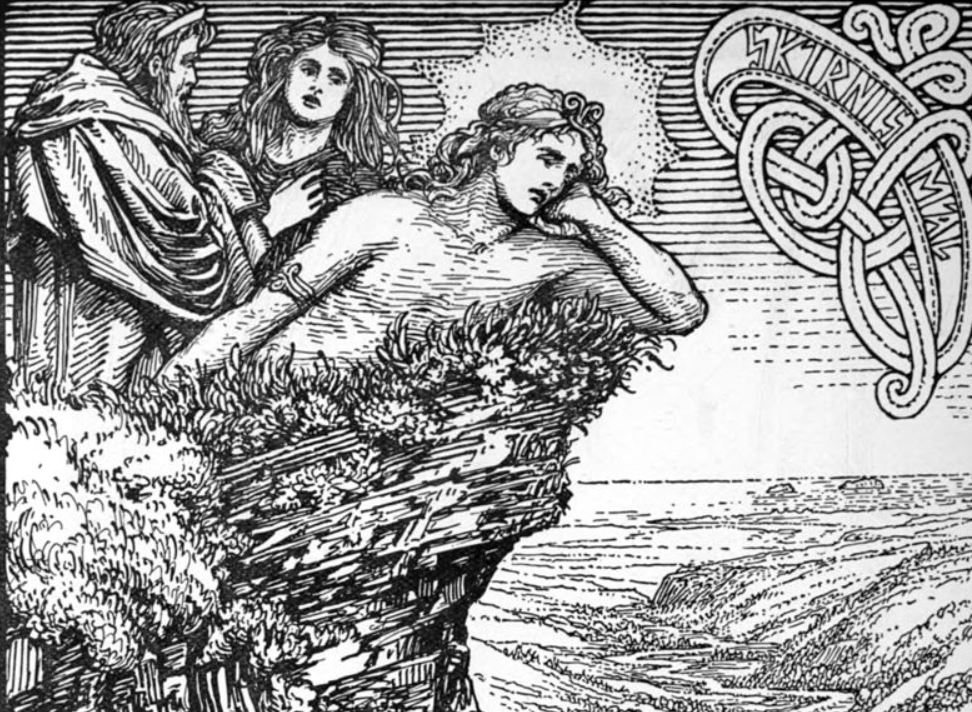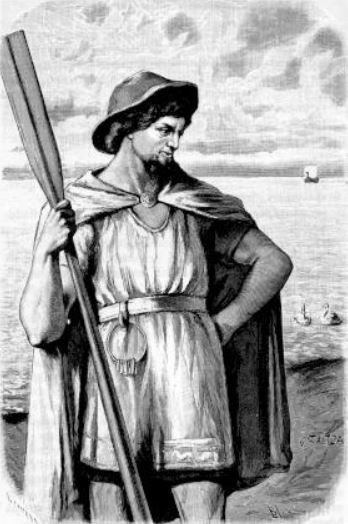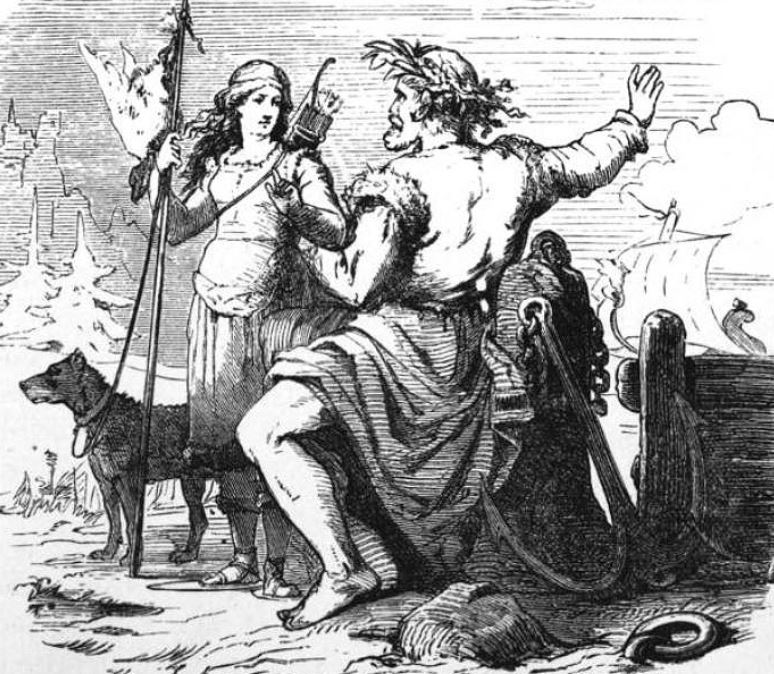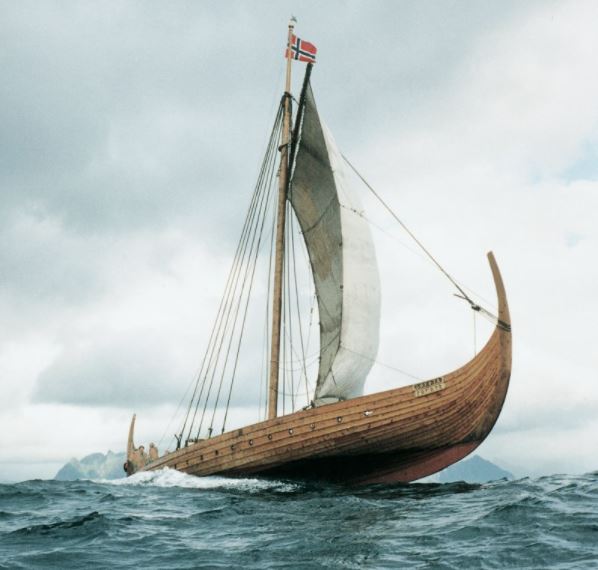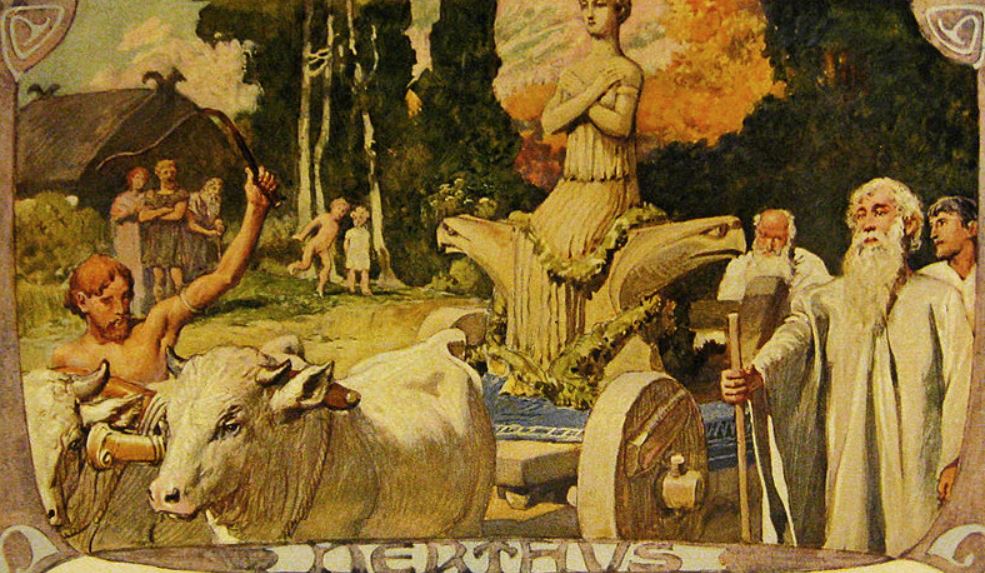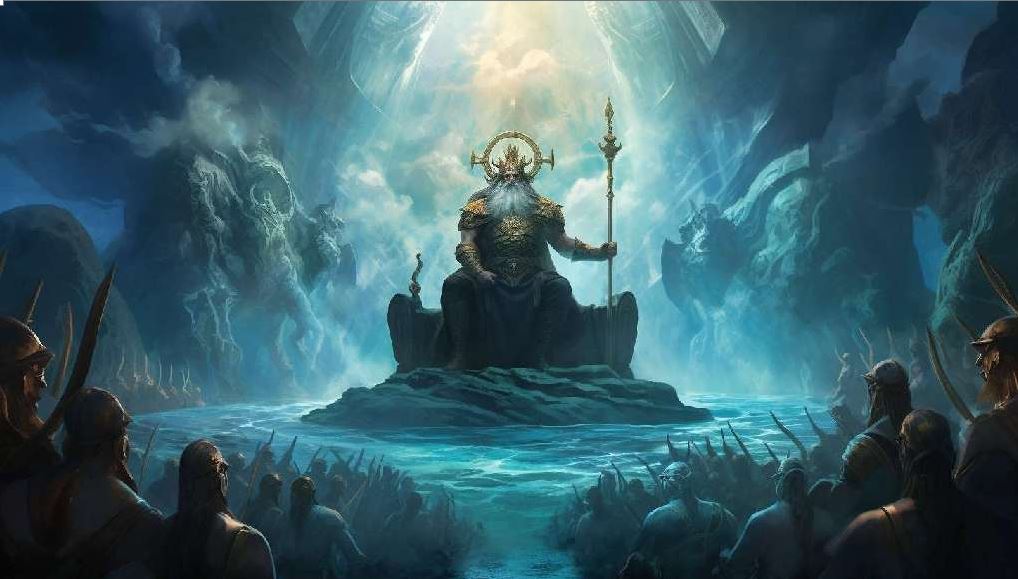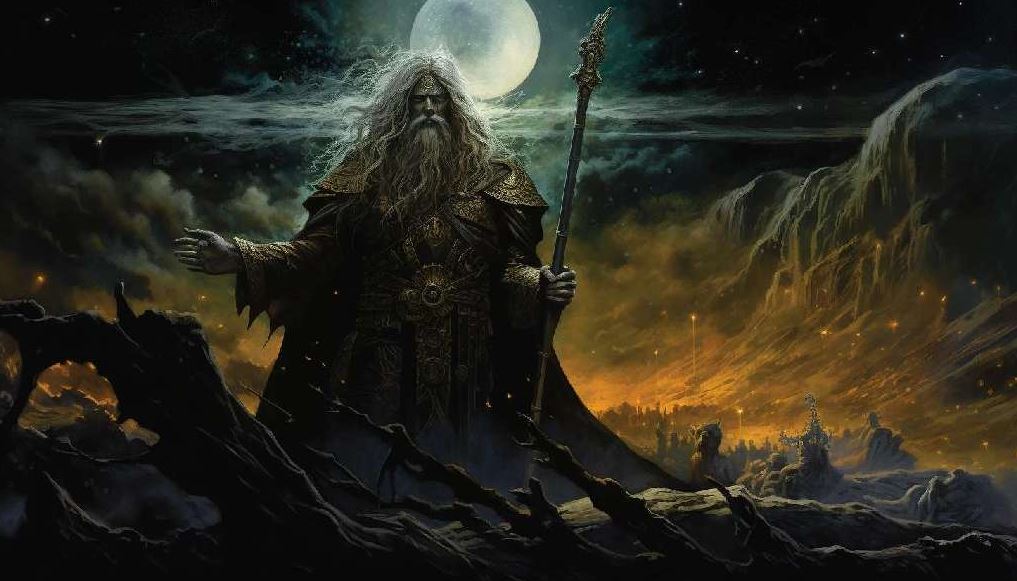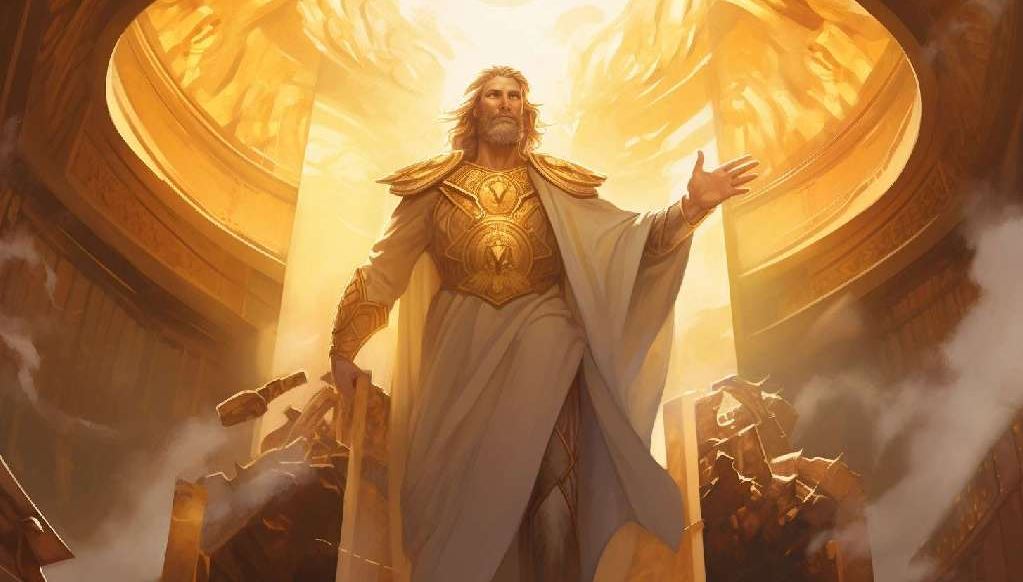The Norse god Njord, Lord of the Seas
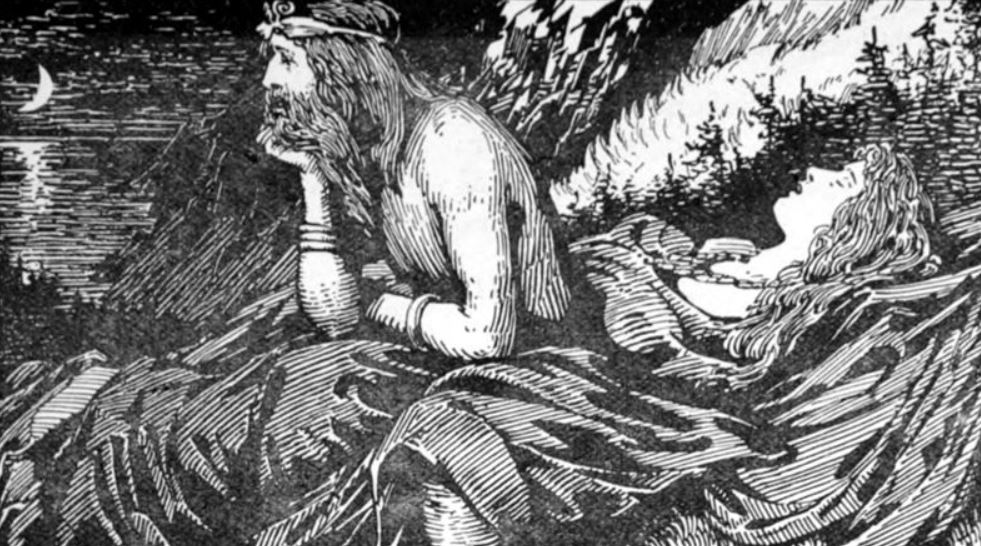
Just like in many other religions, the Norse had a god who was in charge of the sea and everything related to giant masses of waters.
His name was Njord, and indeed, he was the Norse god of the Sea, and of seafaring life in general. In addition, he was linked to fertility and wealth, to the point that among Norseman a very rich person can be said to be “as rich as the Norse god Njord”.
The role of the Norse god Njord in the mythology
Norse gods were divided into two tribes: the Aesirs and the Vanirs. The Norse god of the sea Njord was the patriarch of the latter, and as such he led the Vanirs during the war against the Aesirs, one of the most important events in Norse mythology.
When this war ended, both tribes were asked to give some hostages to the other, in order to prevent any from starting another war. The Norse god Njord was then sent to the Aesirs together with his son Freyr and his daughter Freya and managed to become popular among his former enemies.
The Norse god of the Sea Njord with his sons Freyr and Freya
According to the sources, the mother of Njord’s offspring would have been his own sister, whose name is never pronounced and is, therefore, a matter of debate among scholars.
Besides the relation with his sister, the Norse god of the sea Njord had also a brief and unhappy marriage with a giantess, Skadi, that produced no children.
It is interesting to note that, according to the Poetic Edda, Njord god of sea and wind would have had a very uncommon fate among the gods: in fact, he would not have perished in the Ragnarok, the terrible, final battle between the gods and the giants but, surviving to it, he would have found his way back to the house of the Vanirs.
Norse god Njord meaning: Origin of the Name
The origin of the name “Njord” is unclear.
It is highly probable that it is related to the name of the Germanic goddess of peace “Nerthus”, of which it would be an Old Norse masculine equivalent.
Also, it might be related to the proto-Indoeuropean root “ner-“, which would mean “strong”.
A representation of the Norse god of the Sea Njord
History of the Norse god Njord and Most Important Myths Related to Him
The most important surviving myth regarding the Norse god of the sea Njord is the one describing his marriage to the giantess Skadi. Let’s see this story in detail.
The Marriage of the Norse god Njord and Skadi
The events which led to the marriage of the Norse god of the sea Njord with a giantess began with the kidnapping of Idun, the goddess who provided the other gods with fruits granting everlasting youngness, by the giant Thjazi.
The gods had managed to rescue Idun and had killed Thjazi in the process. Therefore, Thjazi’s daughter, Skadi, marched toward Asgard to avenge her father.
Instead of fighting her, the gods tried to make reparations. First of all, Odin honored Thjazi putting his eyes into the sky, where they became two stars. Successively, they tried to make Skadi laugh.
It was a hard task, finally accomplished by Loki: he tied his testicles to a goat with a rope and started a ridiculous tug-of-war that eventually managed to amuse Skadi.
Finally, the gods said to Skadi that she could choose any of them as her spouse, but she had to make her choice looking only at the gods’ legs and feet.
Skadi tried to individuate by these body parts her top choice, who was the god Baldur, but she failed, picking up the Norse god of the sea Njord instead. So, Njord and Skadi were married, and they had to choose a place to live. First, they tried to settle in Skadi’s place, the mountain location of Thrymheim.
Skadi and the Norse god Njord
After having spent there nine days, the couple left, with the Norse god Njord saying that he could not tolerate the sound of wolves, accustomed as he was to the verse of the swans.
They then moved to Njord’s home, the marine realm of Noatun: after nine days spent there, it was Skadi this time to complain, saying that the seabirds’ voices had made it impossible for her to sleep. Due to their unreconcilable differences, the couple decided to break.
Powers of the Norse god of the sea Njord
Though official Norse mythology does not attribute any particular power to Njord, he has been widely worshipped among Norsemen because he was thought to be able to propitiate fishing.
This aspect of his figure has been present in Norwegian folklore until no long time ago since Njord was sometimes thanked by fishermen after particularly bountiful catches of fish.
Njord god Symbols and Their Meanings
Though no particular object or animal was considered to be a symbol of Njord, he was clearly linked to anything related to the sea, since it was considered to be the environment he inhabited and presided to.
Unofficial Njord god Symbol: the ships
It is possible that ships were considered to be his symbols since it seems that the name of his home, Noatun, actually meant “the place of ships”.
The unofficial Njord Norse god symbol
Additional Norse god of the sea Njord Facts
Despite the lack of sources on the Norse god of the sea Njord, his figure has been widely studied by scholars because of the links it seems to have with German mythology and with other Northern traditional figures.
Discussing the etymology of Njord’s name, in fact, we have underlined the fact that it seems to be related to that of the German goddess Nerthus who, according to the Roman historian Tacitus, was worshipped by many Germanic tribes.
Njord might have been a male counterpart of Nerthus whose existence, was not for Norse mythology, would have been forgotten. Some think that Nerthus could be the unnamed sister of Njord and, therefore, the mother of Freyr and Freya.
A representant of Nerthus
The figure of Njord has also been linked to that of the Saami god of wind and rain, who was called Bieka-Galles. The Saami were, and still are, an indigenous population inhabiting the northern part of Norway, Sweden, Finland, and Russia, a zone traditionally referred to in English as Lapland.
In ancient times, the Saami developed a form of polytheistic mythology and of spiritual animistic practices, which modern anthropologists consider to be a form of shamanism. The Saami used to give boats, among other things, as offerings to Bieka-Galles.
This fact, together with other similarities between Bieka-Galles and Njord, has led the scholars to believe that they might be linked.
The story of Njord’s unhappy marriage has also been linked to a very similar Danish account, describing how the legendary king of Denmark Hadingus was chosen by his wife Ragnhild.

